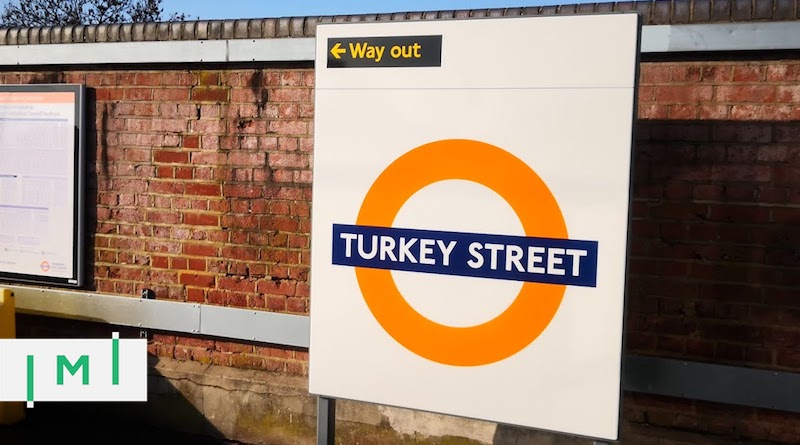ECAA-Visas, The Turkish CIP’s Secret Weapon, May Be Living on Borrowed Time
The Turkish Citizenship by Investment Program has, to put it mildly, greatly overachieved. The expectations for a CIP that carries a cost similar to established CIPs yet without visa-free access to the UK, Schengen, or the US were not great at first, at least among seasoned RCBI professionals. Nevertheless, Turkey’s underdog program, against the odds, proved a fan favorite and will certainly be the highest-grossing CIP in the world this year (and, indeed, in history).
See also: Citizenship Investors Now Raise $250m a Month for Turkey, According to Ministry of Interior
What explains this unexpected success? Some chalk it up to the bargains available in Turkey’s real estate market, thanks to a historically cheap Lira. Others argue that the program is exceptionally simple and straightforward in terms of processing, with minimal documentation required. Turkish nationals enjoying access to the E2 treaty visa with the US is held forth as another selling point, while others have pointed to the Turkish religious landscape as an attraction factor among applicants from the Middle East, one of the three largest source regions for investor migrants.
But perhaps the most attractive aspect of the Turkish CIP is one that has evaded many observers’ attention so far; its secret weapon, the European Community Association Agreement (ECAA) visas, otherwise known as Ankara Agreement Visas.
This unique treaty – first committed to decades ago – is colossal in its significance; it transforms the Turkish CIP from a subpar option for visa-free entry to among the leaders of the pack for business opportunities, relocation, and opening doors for the future generations of an investor.
What is the ECAA visa?
The ECAA is chiefly interesting in its Turkish Businessperson Visa-form, a special visa offered by the UK and available only to Turks. It offers investment migration to the UK through business establishment (self-employment). Many countries offer similar routes outright, yet none of them come with the simplicity and affordability of the TBV.
The UK Home Office outlines the eligibility requirements for the TBV as such:
You must be a Turkish national and show that:
- you have a genuine intention to set up a viable business
- you’ll be bringing sufficient funds to establish your business
- you’ll be able to pay your share of the costs of running the business
- your share of the profits will be enough to support you and your family without your needing to have another job
If you want to join an existing partnership or company you must show:
- you’ll have an active part in running the business
- there is a genuine need for your services and investment
No minimum investment required.
Between 2011 and 2019, the UK approved a total of 5,661 main applicants and 9,000 dependents. What’s remarkable is that more than half of those applications were approved during 2019 alone. The meteoric 272% growth in approved applications between 2018 and 2019 shows that this visa is only now getting the attention it merits.
Expect a deluge of TBV applications
With the Brexit-question finally settled, however, the visa’s future is anyone’s guess as the UK – no longer part of the European Community – is not bound by the ECAA agreement. The UK has announced it will adhere to the agreement until 2021 when the transition period ends.
The TBV, in other words, hangs in the balance, which is the most likely explanation for its surging popularity. Turkey’s CIP, meanwhile, has now approved more than 6,000 applications (with another 9,000 already in the processing backlog) which, thanks to the unprecedently large average family size of applicants (3.82) has translated into some 25,000 new citizens.
By the time the 9,000-strong application backlog has been cleared, we can expect Turkey to have naturalized a up to 60,000 individuals under its CIP. Such lofty figures will, undoubtedly, drive TBV-applications to thus-far unimagined heights in 2020.
The UK Government, however, is ambiguous about its plans for the TBV. While stating it will honor the ECAA until the end of the transition period, it’s also indicating the TBV may survive the divorce from the EU. A statement on the UK government’s official website reads:
“It is not the Government’s intention to transition all agreements in their entirety. This includes the EEA Agreement, the EU-Swiss Free Movement of Persons Agreement and the Ankara Agreement.”
Another paragraph on the same website goes into further detail:
“Turkish nationals enjoy particular rights derived from the Ankara Agreement. Following exit from the EU, the UK’s obligation to this agreement falls away in a no deal scenario. However, as a transitional arrangement, the UK will seek to replicate the effect of the ECAA arrangements for the resident Turkish population. This will allow resident ECAA workers and ECAA business persons and their family members to apply for further leave with similar eligibility requirements as they have now, and apply to settle in the UK. We have not yet entered into any commitments in respect of Turkish nationals arriving after the UK’s departure in a no deal situation.” (Source: GOV.UK)
Moreover, the British ambassador to Ankara, Sir Dominick Chilcott, said on February 7th 2020, while attending a meeting with the Diplomatic Correspondents’ Association, that “after the end of the transition period, the end of this year, we will be no more in the EU and we will no longer be a party to the Ankara Agreement. The provisions of the agreement will not apply to us. What we need to do is to find the right provisions to have in its place.”
The TBV’s post-2020 future will depend on several factors, including what type of deal the UK ends up striking with the EU, and whether the Ankara Agreement is itself amended by bilateral agreement. Whether the TBV survives at all is not a foregone conclusion. Evidently, Turks looking to move to the UK are not waiting to find out.
Want to know more about the Turkey CIP? To see recent articles, program FAQ, official links, and more, visit its Program Page. Hundreds of companies can assist with applications to the Turkey CIP. See which ones in the Residence & Citizenship by Investment Company Directory.
Properties that can qualify the buyer for citizenship in Turkey:
See more properties that come with residence/citizenship opportunities in IMI Real Estate.
Ahmad Abbas is Director of Content Services at Investment Migration Insider and an 8-year veteran of the investment migration industry.










